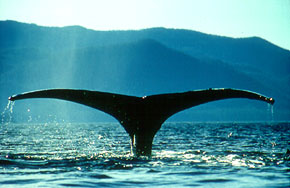Future gangster is "Don Corleone behind a laptop".
Published:
8 September 1999 y., Wednesday
In the next decade, the world_s crime fighters say they will fight international organized crime on several fronts, battling financial fraud, corruption, the sale of human beings for sex and labor and the trafficking of weapons of mass destruction. The focus of a three-day crime-fighting conference at Garmisch-Partenkirchen (Germany) sponsored by the FBI and the George C. Marshall European Center for Security Studies was touted in advance- as an assessment of organized crime_s impact on national security. But the meeting of American, European and Eurasian top brass ended Thursday with little open discussion of such forecasts. Organizers admitted the conference fell short of that objective, but said other goals had been achieved, namely the forging of new East-West relationships between law enforcement officials. One senior U.S. law enforcement official involved in planning the event told APBNews.com it was difficult to get officials from the former Soviet republics to open up and discuss their problems and worries over mobsters operating in their fledgling democracies. Author and criminologist Joseph Albini, of Indiana_s Wayne State University, said he estimates that as early as 2000, more than 90 percent of those involved in organized crime will be computer literate on some level. "The conception of Don Corleone [from the "Godfather" movies] smoking a cigar is better seen as Don Corleone behind a laptop," he said. It is the access to mass media information and the technology boom that are changing the face of mobsters from thugs to super-criminals, Albini said. Kulikov echoed that view. "We are at the threshold of a new millennium. We have to be prepared for the emergence of new types of criminal activity," including technological, he said. The retired Russian general clicked off a number of examples, including trafficking illegal genetically-engineered human organs and crop seeds. A senior intelligence officer from Great Britain who specializes in organized-crime analysis said tomorrow_s gangsters almost certainly will be consumed with electronic commerce, particularly online gambling, credit card fraud and virtual banking, where a financial institution exists solely in cyberspace. Another possibility, he said, is the theoretical notion of virtual-reality narcotics, which assumes it is possible to transmit a digital "stimulant" or hallucinogen across the Internet, creating a new form of addiction. "Biotechnology and information technology are the two biggest revolutions of this century, and we should look at each of them and see where the potential for money is from the criminal point of view," the official told APBNews.com, requesting anonymity.
Šaltinis:
APBNEWS.COM
Copying, publishing, announcing any information from the News.lt portal without written permission of News.lt editorial office is prohibited.
The most popular articles
 In England it's thought nearly one in six children are overweight - something the government is trying hard to change.
more »
In England it's thought nearly one in six children are overweight - something the government is trying hard to change.
more »
 Self-styled "freeconomist" Mark Boyle is on a mission to survive for one year by trading his skills, living off the land, and finding freebies.
more »
Self-styled "freeconomist" Mark Boyle is on a mission to survive for one year by trading his skills, living off the land, and finding freebies.
more »
 You may see lots of people wearing red ribbons today.
more »
You may see lots of people wearing red ribbons today.
more »
 Former astronaut turned MEP Umberto Guidoni of the leftist GUE/NGL group believes that the European Union should have a major role in space exploration.
more »
Former astronaut turned MEP Umberto Guidoni of the leftist GUE/NGL group believes that the European Union should have a major role in space exploration.
more »
 A Dutch couple are caught up in the middle of a baby scandal. They bought the baby over the internet from its Belgian mother, now the mother wants her baby back.
more »
A Dutch couple are caught up in the middle of a baby scandal. They bought the baby over the internet from its Belgian mother, now the mother wants her baby back.
more »
 For the past 12-weeks the Japanese tourist has been living in Terminal One at Mexico City International Airport.
more »
For the past 12-weeks the Japanese tourist has been living in Terminal One at Mexico City International Airport.
more »
 Growing numbers of older Europeans are choosing to work longer, reversing the previous trend toward early retirement – a development that could ease Europe’s aging population problem.
more »
Growing numbers of older Europeans are choosing to work longer, reversing the previous trend toward early retirement – a development that could ease Europe’s aging population problem.
more »
 The Saemangeum land reclamation project would use a 33-km (20.5 mile) sea dyke to reclaim an area of 400 square kms (155 sq miles), turning coastal tidelands that are key feeding areas for globally threatened birds into land for factories, golf courses and water treatment plants.
more »
The Saemangeum land reclamation project would use a 33-km (20.5 mile) sea dyke to reclaim an area of 400 square kms (155 sq miles), turning coastal tidelands that are key feeding areas for globally threatened birds into land for factories, golf courses and water treatment plants.
more »
 Sixty – four pilot whales stranded on the north coast of Tasmania.
more »
Sixty – four pilot whales stranded on the north coast of Tasmania.
more »
 For decades starlings have descended on the Italian city of Rome making it their winter home.
more »
For decades starlings have descended on the Italian city of Rome making it their winter home.
more »